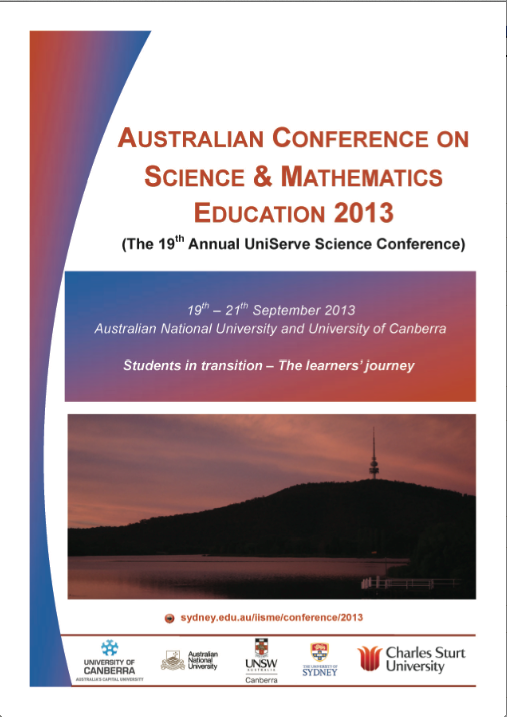An evaluation of self-regulated learning strategies in science
Abstract
First year university students often have difficulty managing the amount of time and quality of cognitive effort devoted to learning (Pintrich, 1995). These students may fail to meet the academic demands of university through a lack of effective ‘self-regulation’ strategies, those methods utilised by students to acquire new knowledge or skills (Zimmerman, 2002). Students’ abilities to effectively self-regulate are positively associated with academic success, understanding, problem-solving and task persistence (Nota, Soresi & Zimmerman, 2004). This study aimed to identify major self-regulation strategies amongst a first year cohort, and to identify differences between the types of strategies used by high achievers and poor achievers. First year Human Movement Studies students undertaking physiology (n=266) partook in a meta-learning task that required them to identify hindrances to their learning, and suggest strategies to combat these hindrances. The most common strategies identified were reviewing notes, ensuring lecture attendance and better time management. High achieving students identified a greater number and more advanced strategies, such as seeking lecturer assistance and information, than poor achieving students, suggesting higher levels of self-motivation, and more active knowledge seeking behaviour. These findings will assist us to design effective interventions to aid student self-regulation behaviours. References Nota, L., Soresi, S. & Zimmerman, B.J. (2004). Self-regulation and academic achievement and resilience: A longitudinal study. International Journal of Education Research, 41,198–215. Pintrich, P.R. (1995). Understanding self-regulated learning. New Directions for Teaching and Learning, 63, 3–12. Zimmerman, B.J. (2002). Becoming a self-regulated learner: An overview. Theory Into Practice, 41, 64–70. ntions to aid student self-regulation behaviours.Downloads
Published
2013-09-23
Issue
Section
Abstracts
